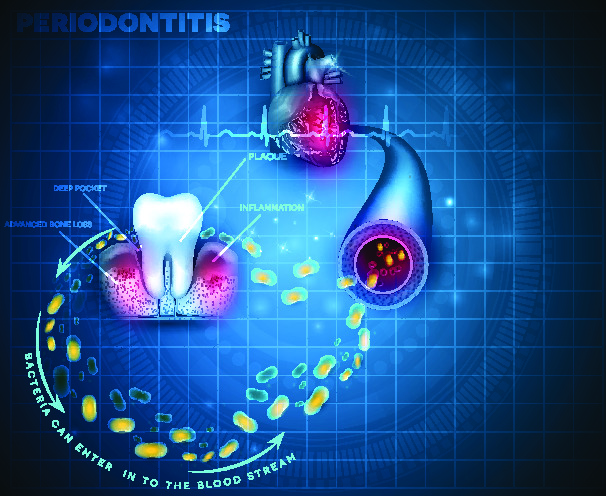
The Evolution Of Dental Implants
Are you thinking of getting dental implants in Joliet? There’s a lot of history behind this procedure and it goes back farther than you might expect.
From the very first recorded implants to present-day surgery, we’ve come a long way. Smile League Dental is proud to be able to provide this procedure in a safe, friendly atmosphere with very little risk and very high success rates. Feel free to contact us or stop by our Joliet office to learn more or to schedule an implant consultation.
Just in case you’re wondering what a dental implant is, it’s a prosthetic tooth route that binds to your bone in order to replace a missing tooth. With that in mind, let’s take a look at how implants have changed over the years.
Antique Implants
It has, in fact, been more than just years since implants have been around. It has been millennia.
Some of the earliest dental implants we know about come from China. Chinese dentists some 4000 years ago used carved bamboo shunts as an implant material, securing them into the jaw bones of their patients. Ancient Egypt was also a center of early implant technology, except the Egyptians used precious metals, minerals, and materials such as ivory as a prosthetic.
There’s evidence in the Americas of dental implants, too. People here used carved shells as dental prosthetics.
Modern Implant Research
Some of these ancient methods must have worked based on archaeological evidence, but chances are that the success rate was not very high. The lack of infection control also probably made dental implants relatively dangerous. The goal of modern dental researchers was to make implants into the reliable, safe technology that they are today.
This did not happen overnight. Initial research focused mostly on precious metals, with little success. These metals did not fuse to the bone enough to become reliable permanent replacements for teeth.
Breakthroughs in modern dental prosthetics came around the 1930s, about the same time orthopedic surgeons were making strides in bone and joint repair. Unsurprisingly, the same materials that worked for other bones also helped teeth fuse to the jaw bone.
Into Contemporary Times
Early prosthetic alloys were not the most accessible options for most people. We have mid-20th century medicine and metallurgy to thank for the popularity of implants today. Most implants are now made of titanium, a material that was becoming widely available starting around the 1950s due to increased demand in the aerospace industry. A researcher discovered that it was an effective material in bone grafting, which led to its widespread use as a dental implant in the second half of the 20th century on through today.
Getting an Implant
Research has kept going, with new improvements on, alternatives to, and refinements to the solid foundation of titanium implant technology. In fact, this is one of the best times in history to get dental implants in Joliet, so feel free to schedule your appointment with Smile League Dental today by calling 815-782-6243.

The Relationship Between Gum Disease and Heart Disease
It’s natural to feel uncomfortable or even a little scared of gum disease. This type of infection can have some embarrassing and painful symptoms.The best way to deal with gingivitis and periodontitis is to face the issue head-on and get the help you need as early as possible. Smile League has Joliet gum disease treatment in a relaxed, friendly, professional environment, so please reach out and schedule an appointment.For the rest of this article, we’re going to look at the research connecting gum disease to heart disease. We are also going to talk about some symptoms and preventive measures you can take.
Gum Disease and Heart Disease: Are They Related?Did you ever think about how strange it is to have a different doctor for your mouth than you do for the rest of your body? All of these systems are connected in one way or another, and we are beginning to learn more about those connections.Recent research has suggested a stronger link between gum disease and heart disease. We’ve discovered the same type of bacteria in diseased hearts as we find in infected gums. There are also correlations between gum inflammation and some types of cardiovascular inflammation.The theory is that bacteria could enter the bloodstream through the gums. From there, it ends up forming reservoirs in other parts of the body.What does that mean for your heart health? The general consensus is that people at risk of heart disease, especially those with artificial valves, should make every effort possible to maintain good oral health.
Catching Gum Disease EarlyTo keep up with your oral health, you’ll want to pay close attention to any changes involving your teeth, gums, or mouth. Here are some symptoms to watch out for:
- Bad breath (not just after food or drink)
- Bleeding when you floss
- Changes in the appearance of your gums (different colors or puffy-looking gums)
- Longer-looking teeth (receding gums)
- Swollen or reddened gums
- Bleeding or pain, especially without flossing
- Loose teeth or teeth falling out
There’s no such thing as a minor symptom of gum disease, but some of these are obviously more serious than others. Please contact us if you have any of them — and preferably reach out before you start feeling pain or serious discomfort.
Preventing and Treating Gum DiseaseGum disease is typically a progressive problem that we control early through focused changes in habits. Sometimes, we recommend professional intervention. There are also some things that could prevent it (or prevent it from getting worse):
- Brushing and flossing regularly
- Quitting smoking
- Getting professional cleanings
- Having regular preventive dentist appointments
- Getting deep cleanings
- Taking certain types of antibiotics
Treatment really depends on your exact condition — we’ll have to take a look to see what we can do. Also, if you already come in a couple of times a year, you can be confident that your dentist is already keeping an eye out for any signs of gum disease.Hopefully, that provides a good summary of what we currently know about the link between gum disease and heart disease. For more questions or to make an appointment, feel free to reach out to our experienced family dentists in Joliet at any time.
Recent Comments